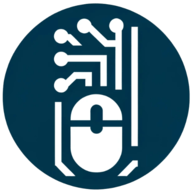6 Mentoring Junior Software Engineers: Tips and Advice
Mentoring junior software engineers is a crucial aspect of fostering talent in the tech industry. Effective guidance can accelerate their growth, improve code quality, and contribute to the overall success of development teams. This article explores key strategies for mentoring junior developers, from integrating advanced technologies to cultivating essential soft skills.
- Guide Blockchain Integration for Smooth UX
- Foster Problem-Solving Through Guided Discovery
- Normalize Mistakes to Encourage Growth
- Teach Best Practices and Design Patterns
- Inspire Continuous Learning in Tech
- Develop Clear Technical Communication Skills
Guide Blockchain Integration for Smooth UX
A junior frontend developer I worked with was integrating a dApp frontend with a smart contract but was unsure how to handle wallet connections and network switching. I walked them through how MetaMask injects the Ethereum provider, the differences between web3.js and ethers.js, and how to structure asynchronous wallet interactions. We discussed how to detect network changes, handle user rejections gracefully, and why it's important to abstract provider logic to avoid tight coupling. I emphasized the need to build smooth, user-friendly onboarding experiences because blockchain UX is still a major friction point for adoption.
Foster Problem-Solving Through Guided Discovery
Encouraging problem-solving skills through guided discovery is a key aspect of mentoring junior software engineers. Instead of providing immediate solutions, mentors should ask thought-provoking questions that lead the mentee to discover answers on their own. This approach helps build confidence and critical thinking abilities. By guiding juniors through the problem-solving process, mentors can teach them how to break down complex issues into manageable parts.
This method also fosters independence and creativity in finding solutions. Mentors should strive to create an environment where junior engineers feel comfortable exploring different approaches. Implement this guided discovery technique in your next mentoring session to boost your mentee's problem-solving skills.
Normalize Mistakes to Encourage Growth
Fostering a growth mindset by normalizing mistakes is crucial in mentoring junior software engineers. It's important to create an atmosphere where errors are seen as learning opportunities rather than failures. Mentors should share their own past mistakes and the lessons learned from them to show that everyone, regardless of experience level, continues to grow.
By framing mistakes positively, junior engineers can develop resilience and the courage to take on challenging tasks. This approach also encourages innovation, as fear of failure often hinders creativity and risk-taking. Emphasize the value of learning from errors in your mentoring relationships to help junior engineers thrive.
Teach Best Practices and Design Patterns
Teaching coding best practices and design patterns is essential for developing strong junior software engineers. Mentors should focus on explaining not just how to write code, but why certain approaches are preferred. This includes discussing concepts like clean code, modular design, and efficient algorithms. By understanding these principles, junior engineers can create more maintainable and scalable software.
It's also important to introduce common design patterns and when to apply them effectively. This knowledge helps juniors think more systematically about software architecture. Incorporate discussions about best practices and design patterns into your code reviews to enhance your mentee's understanding.
Inspire Continuous Learning in Tech
Promoting continuous learning and staying industry-current is vital for the growth of junior software engineers. The tech industry evolves rapidly, and it's crucial to instill a love for lifelong learning in mentees. Mentors can suggest relevant resources such as books, online courses, and tech conferences to keep juniors updated. Encouraging participation in coding challenges or open-source projects can provide practical experience with new technologies.
It's also beneficial to discuss emerging trends and their potential impact on the field. This mindset of continuous improvement helps junior engineers adapt to the ever-changing landscape of software development. Start a regular learning session with your mentee to explore new technologies and industry developments.
Develop Clear Technical Communication Skills
Emphasizing effective communication in technical discussions is a crucial skill for junior software engineers to develop. Clear communication helps in collaborative coding, explaining complex concepts, and presenting ideas to stakeholders. Mentors should guide juniors on how to articulate their thoughts concisely and logically, both in writing and verbally. Practicing code documentation and commenting is an excellent way to improve written communication.
For verbal skills, encouraging juniors to participate in code reviews and team meetings can be beneficial. Effective communication also involves active listening and asking clarifying questions. Work on improving your mentee's communication skills by role-playing different scenarios they might encounter in their professional life.


